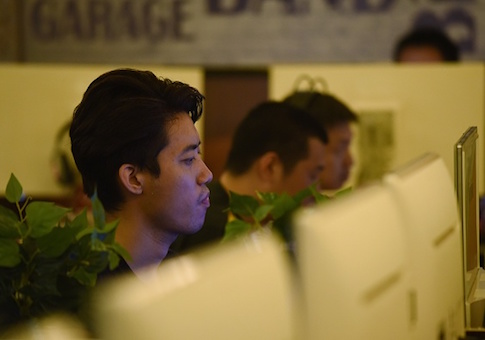China is waging war against the United States through a far-reaching foreign influence operations campaign that has raised concerns of spying and technology theft, according to regional experts.
In testimony before the House Intelligence Committee last week, James Phillips, chairman and CEO of NanoMench Inc., warned the Chinese government is subtly exploiting America's open innovation model to steal business secrets and academic research, posing a greater national security threat than the much-publicized actions by Russia.
"We need to quit talking about Russia," Phillips said. "There's a real war going on—it's a cyber war like never before, where they're invading the United States every day trying to take over the United States in terms of our science and technology. If they're not stealing it they're imitating it, or they're trying to get it through other means."
U.S. intelligence officials have warned for years of Beijing's emergence as a major strategic competitor that is seeking to supplant the United States as an economic and military powerhouse. During a security conference in Aspen, Colo., last week, FBI Director Christopher Wray called China the "most significant" long-term threat to the country, noting the bureau is pursuing Chinese-linked economic espionage investigations in all 50 states.
The CIA has raised similar concerns, issuing a classified report detailing China's efforts to impart financial incentives as leverage to permeate American institutions. Partnerships between Chinese companies and U.S. universities have been of particular concern, especially on campuses that have ties with Beijing-based firms and host sensitive Pentagon research.
Elsa Kania, an adjunct fellow at the Center for a New American Security, testified at the hearing that China has staged several intrusions over the past few years targeting universities that engage in military research, including Penn State and the University of Virginia.
Though the Defense Department is now investigating these partnerships, the Pentagon's undersecretary for research and engineering has said the department is "not yet as vigilant" as it needs to be to ensure military research is withheld from campuses that have these ties.
Congress has also targeted these partnerships in recent months, hosting several congressional panels that have examined attempts by foreign actors to infiltrate American institutions of higher education to conduct espionage and steal federally funded research.
A bipartisan group of 26 lawmakers last month sent a letter to Secretary of Education Betsy Devos urging her to require American universities working with Chinese technology titan Huawei to hand over all documents and information related to the partnership.
Phillips, of NanoMench, testified that what the Chinese are not stealing, the United States is giving away to them through faulty technology transfer commercialization programs.
"We're publishing our very best science out of our universities, national labs onto the internet, giving it free to countries like China," Phillips said. "It just doesn't make any sense to the extent that that could be moved from ideation to invention to innovation to full execution commercialization and we could have the lead on innovation, not only now, but on a permanent basis and all that translates to GDP. The winner is not going to be through wars anymore, it's going to be through GDP—the country with the best jobs and the most jobs."
